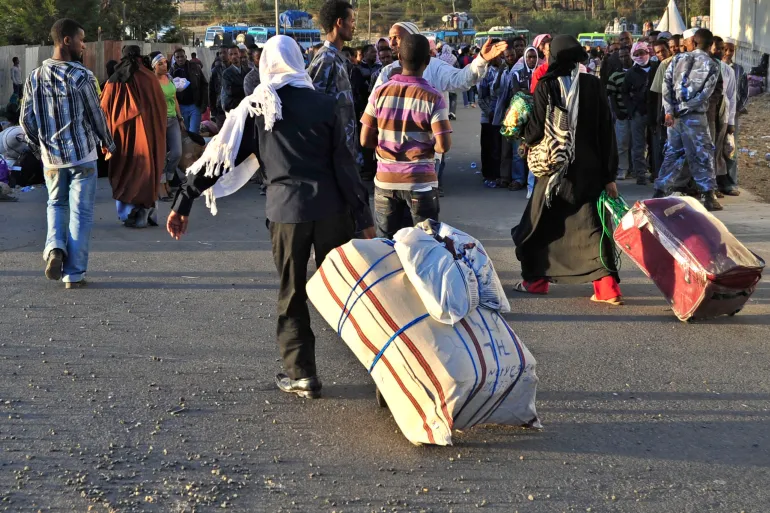Hundreds of migrant workers in Saudi Arabia have gone unpaid for as long as eight months, raising serious concerns about labour rights and protections in the country. According to Human Rights Watch, the affected workers were employed by Sendan International, a manufacturing and supply company, including on projects for the state-owned oil giant Aramco. Many of these workers, who came from Bangladesh, India, and Nepal, were left stranded without pay, forced into undocumented status, or compelled to return home at their own expense, leaving behind unpaid wages and benefits.
This crisis comes at a time when Saudi Arabia is undergoing a massive construction boom, including work on 11 stadiums ahead of hosting the FIFA World Cup in 2034. With Aramco being a global partner of FIFA, rights groups are warning that such abuses could tarnish the reputation of international sporting events associated with the country. Human Rights Watch stressed that Saudi Arabia’s lack of effective protection for migrant workers allows companies to mistreat them with impunity.
Interviews conducted between June and August 2025 revealed the depth of the crisis. Workers reported that they stopped working in March after months without pay, but estimates suggest that more than 850 employees may have been affected. Although reports indicate Sendan International may have ceased operations in late 2024, workers continued to report for duty until early 2025 without receiving wages. Neither the company nor Aramco responded to requests for comment.
Saudi Arabia’s Human Resources Ministry acknowledged the issue and said that violations were detected through the Wage Protection System. Officials added that corrective measures were taken in coordination with the company, affected workers, and their embassies. However, they provided no clear answers on how many workers were impacted or how many claims had been resolved. The ministry pointed to the Expatriate Worker Wage Insurance Service, run by Al-Etihad Cooperative Insurance, as a safety net, but many workers reported they had not applied for fear of deportation or retaliation. Those who did apply said they are still waiting for answers.
Meanwhile, the daily lives of these workers have been pushed into hardship. Many said they were provided with inadequate food supplies, describing meals limited to rice and lentils and a lack of basic necessities such as toothpaste or soap. Families back home, who relied on monthly remittances, are also struggling. Some workers said they had to ask their relatives to send them money for survival, reversing the very reason they migrated in the first place. Others described being unable to repay heavy recruitment debts taken in their home countries, which remain illegal under Saudi law.
Frustration and desperation drove hundreds of workers to protest or post their grievances online, despite strict Saudi laws that ban demonstrations. Some employees even attempted to continue working at Aramco sites but refused after supervisors pressured them to do so without pay. Others fled to seek irregular work, risking arrest and deportation. One Bangladeshi worker explained that he quietly left the company, fearing for his family’s survival if he stayed unpaid.
Wage theft has long been one of the most common forms of abuse against migrant workers in Saudi Arabia. Rights organizations, including the Building and Wood Workers’ International Union, have filed forced labour complaints with the International Labour Organization against the kingdom. Even with Saudi Arabia’s new wage insurance service introduced in 2024, protections remain weak. Workers can only apply after being unpaid for six months, and only if 80 percent of employees in a company face the same issue, a condition that excludes many cases.
Even when eligible, workers may only recover a fraction of what they are owed. Coverage is capped at SAR 17,500 (about US$4,663), excluding benefits such as end-of-service pay. Many workers fear that submitting claims could jeopardize their chances of finding new employment or lead to deportation, leaving them trapped in silence. As one worker put it, claiming back his wages might stop him from receiving a release paper to transfer jobs, so he chose not to risk it.
Human Rights Watch warned that if workers in such a large and visible case struggle to secure justice, many more migrants enduring similar abuses may never be compensated. The organization called on Saudi Arabia, Aramco, and FIFA to demand stronger protections to prevent exploitation. Without urgent reforms, migrant workers, who form the backbone of Saudi Arabia’s labour force, will continue to face delayed wages, exploitation, and despair in silence.

